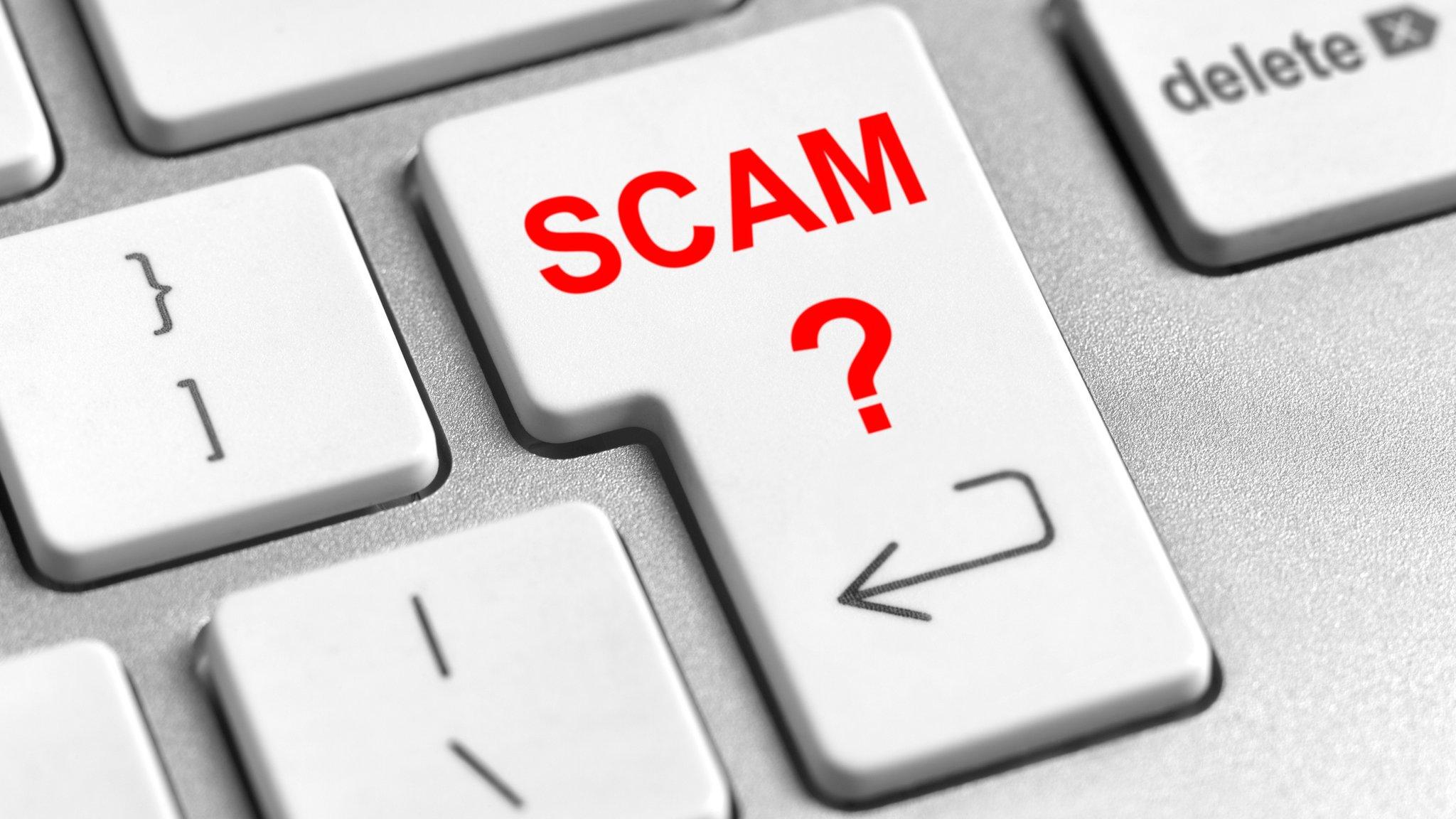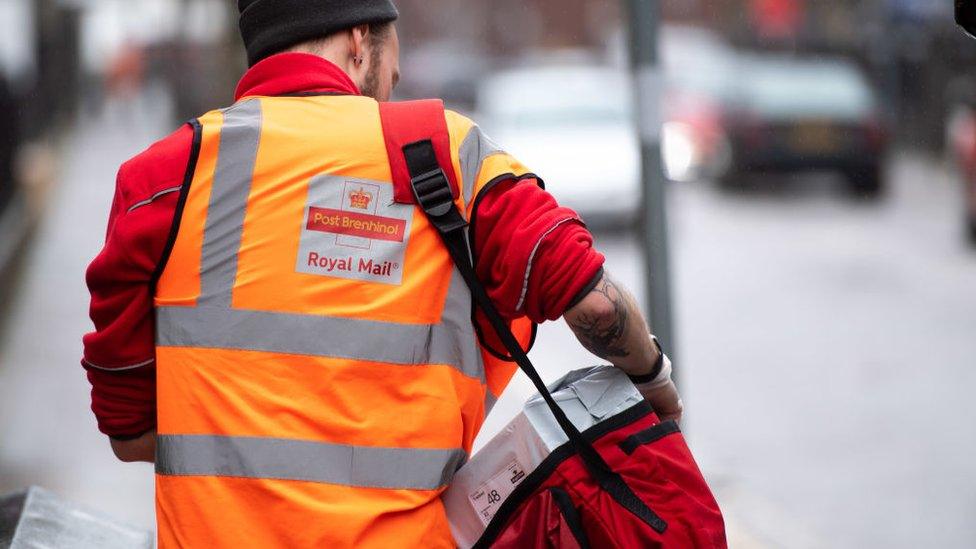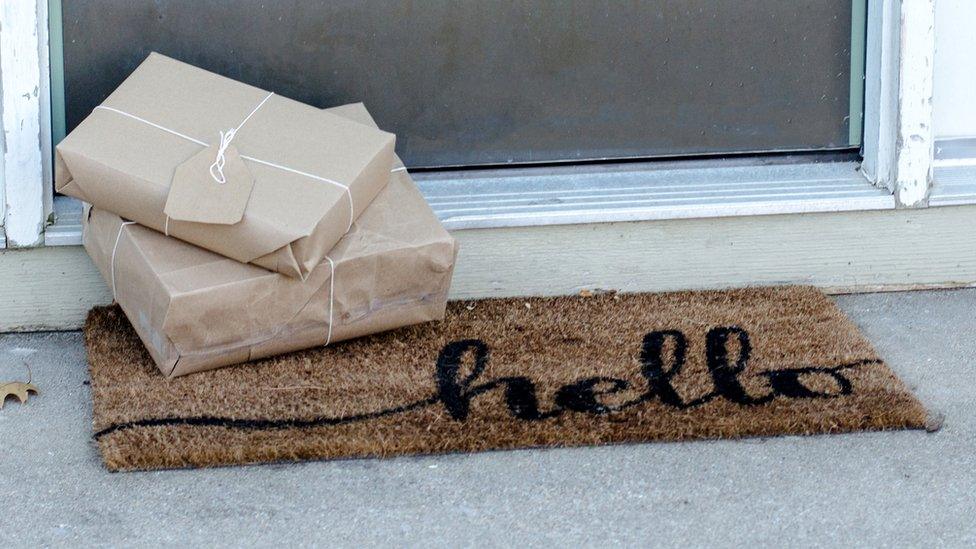Beware Christmas parcel delivery scams, banks warn
- Published

People are being warned to watch out for parcel delivery scams during the Christmas postal rush.
Criminals are looking to defraud consumers by posing as well-known delivery companies, the banking trade body UK Finance has warned.
Fraudsters have been sending emails saying they have not been able to deliver goods, and then ask for a fee to rearrange the delivery.
They then try to extract financial details which are used to commit fraud.
Customers are typically tricked into clicking on links to seemingly genuine websites requesting personal and financial information such as their address, date of birth, mobile number or bank details.
In some cases, victims receive a call from the criminal later pretending to be from their bank's fraud team, trying to persuade them to move their money to a safe account or reveal their pass codes.
'Stop and think'
UK Finance says the public should also be aware of an increased risk of scam phone calls and fake delivery notices posted through letterboxes.

Fraudsters send links to seemingly genuine websites
These notices will ask for advance payment or for customers to provide information that is later used to defraud them.
"Unscrupulous criminals will stop at nothing to commit fraud and that includes exploiting the festive season to target their victims," said Katy Worobec, managing director of economic crime at UK Finance.
"We are urging people not to give a gift to fraudsters this Christmas and to follow the advice of the Take Five to Stop Fraud campaign. Always take a moment to stop and think before parting with your information or money and avoid clicking on links in an email or text message in case it's a scam."
One IT worker, who didn't want to give his name, told the BBC he received an email earlier this month purporting to be from the delivery firm DPD. It asked him to pay £2 for re-delivery.
He entered his bank details, but when he checked his account balance two days later he discovered a new purchase from Apple UK for £409.
"I fell for it without thinking as I have a lot of deliveries at the moment," the IT worker said.
The man's bank refunded the full amount and promised to investigate the fraud.
But not all victims will be so lucky. Some banks refuse to refund money that's been lost when victims volunteer information such as bank details, even though they've been duped.
UK Finance says people should watch out for mis-spelled names, or cards and communication without your name specifically on them.
If you are asked to contact the delivery firm, copy and paste any web address into a new browser, rather than clicking straight onto a link and phone numbers should be checked against the company's own listed numbers.

How to prevent fraud
The Take Five to Stop Fraud, external campaign is urging people to:
Stop: Taking a moment to stop and think before parting with your money or information could keep you safe
Challenge: Could it be fake? It is OK to reject, refuse or ignore any requests. Only criminals will try to rush or panic you
Protect: Contact your bank immediately if you think you've fallen for a scam and report it to Action Fraud


Have you been the victim of a parcel fraudster? Share your experiences by emailing haveyoursay@bbc.co.uk, external.
Please include a contact number if you are willing to speak to a BBC journalist. You can also get in touch in the following ways:
WhatsApp: +44 7756 165803
Tweet: @BBC_HaveYourSay, external
Please read our terms & conditions and privacy policy
If you are reading this page and can't see the form you will need to visit the mobile version of the BBC website to submit your question or comment or you can email us at HaveYourSay@bbc.co.uk, external. Please include your name, age and location with any submission.
Related topics
- Published12 December 2020

- Published30 November 2020

- Published14 November 2020

- Published24 September 2020

- Published27 November 2020

- Published7 September 2020
